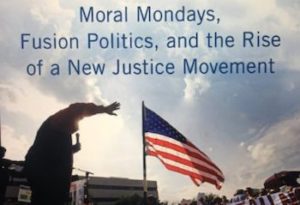
*Black History and American Fusion Politics are affirmed on this date in 1890. This is a national manifestation of business in a society centered on citizen and common populace uplift.
After the American Civil War, fusion politics united political parties briefly and has ebbed and flowed with intended progressive, independent, self-governing results. In some western states, the Populists and the Democratic Party united, but in North Carolina, the movement, spearheaded by agricultural leader Marion Butler, combined the Populist and Republican parties. Aggressive efforts to punish people who were nonwhite, poor, or women created merger planning against greed in the political and private American sector.
The Knights of Labor exampled fusion of citizen and worker unity. As the post-war nation tried to heal itself, honest work to be legitimately rewarded became necessary. This state-based belief remained and grew amid the Compromise of 1877. In the presidential election 1896, the Populist Party ironically backed the Democratic presidential candidate William Jennings Bryan at the national level while joining forces with Republicans at the state level. Helen Gray Edmonds, in 1973 wrote 'The Negro in Fusion Politics in North Carolina 1894-1901.' The Democrats controlled state politics from 1877–1894, and their election policies and voter suppression kept them in control. The Democrats were the "white man's party," especially when Blacks became more active in the Republican party.
1894 was when a major change occurred; the Fusion ticket of Republicans and Populists gained control of the General Assembly. Black legislators like George Henry White and Pickney Pinchback were state policymakers of early fusion politics in the South. Historically, the term Fusion politics does not imply a political merger. The parties maintained separate executive committees and cooperated whenever feasible by forming joint electoral tickets. Fusion politics is a people-first concept that has witnessed some well-intended organizations fail with the political mixture; the Colored Nation Labor Union is an example. In the Tar Heel State, the Populist and Republican parties of the 19th century disagreed on specific national issues, such as the tariff, the gold standard, and silver coinage. The parties, however, agreed on many state issues, including education, voting rights, and restoring the charter of the Farmers' Alliance.
The pushback against this 19th-century North Carolina political class and racial alliance at the height of Reconstruction suffered dearly with the Wilmington Massacre in 1898. The ideology of the Republican party switched during the great depression in 1929. Private profit conservative values for white men became its trademark. Still, the needs of ordinary citizens and marginalized groups did not lose sight of the moral meaning of the Constitution. Voter suppression, racism, women's rights, and union representation were all the 'second reconstruction' of the American Civil Rights movement.
Three generations later, the Poor Peoples Campaign and other state and national community movements of the 1960s emerged as joint forces of Fusion Politics. In the 21st century, police brutality, minimum wage issues, abortion rights, homelessness, and environmental justice have reignited action against corporate greed and conservative control. Rev. William Barber contends that this model is the surest means to confront white supremacy, elitism, sexism, etc., and ensure American democracy. He said: "The same forces demonizing immigrants are also attacking low-wage workers," the same politicians denying living wages are also suppressing the vote; the same people who want less of us to vote are also rejecting the evidence of the climate crisis and refusing to act now; the same people who are willing to destroy the Earth are eager to deny tens of millions of Americans access to health care."
Barber has helped lead one of the nation's most sustained and visible anti-poverty efforts. Also, authors and journalists such as Isabelle Wilkerson, lawyers, and activists such as Stacy Abrams, Winona LaDuke, and others are focusing on the historical and moral parallels Americans of all races and genders share. Fusion Politics can be a blueprint of the 'third reconstruction' for economic, legal, and social change for black, marginalized, and poor citizens in America.